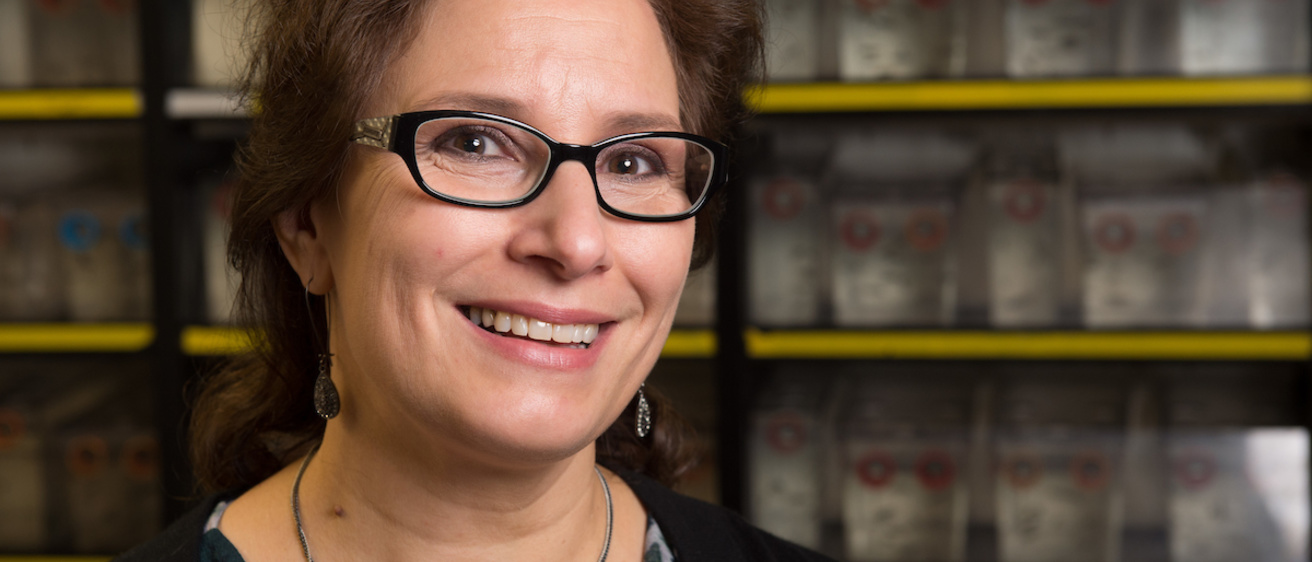On July 1, professor Diane Slusarski took over as departmental executive officer in biology at the University of Iowa. She recently spoke with Iowa Now about her vision for the office and what it means to be a female leader in a scientific field: She’s the first woman to head the department in its 161-year history.
What is your vision for the department?
Our vision is to capitalize on the strengths of the Department of Biology and the national emphasis in science and technology. By so doing, we will attract additional private and public funding for educational and scientific programs; we will enhance our national and international reputation, attracting the best students and teachers; and we will offer a modern biology curriculum that enables our students to achieve their academic and career goals. We aim to make the University of Iowa a prominent STEM destination.
What do you most look forward to accomplishing in your new position?
I see a great opportunity to expand outreach and to form industry partnerships. Toward this, I am looking to form an external advisory board, the function of which will be to provide strategic advice and advocacy, support fundraising, enrich student opportunities, and thereby be able to help increase our visibility and grow our department in both size and prestige. The department of biology has a unique and rich combination of basic and applied research, with a central role in life sciences education with interdisciplinary connections that span the university. The diverse range of research disciplines enriches the teaching mission and produces outstanding training opportunities and outreach that are well aligned with the University of Iowa’s priorities.
What does it mean to you to be the first woman to lead the department?
While my new position is personally exciting and gratifying, it does not define the importance of my holding the DEO position in addition to continuing to lead my research program. There are too few women in leadership positions in STEM disciplines. It is a shame, since we are a segment of the population that, if so inspired, could contribute a whole new portfolio of discoveries and unique expertise. I have had the benefit of great mentors, both male and female. So I want to use my position as a message to young female students that the sciences offer academic, technical, and teaching training that can lead to exciting and rewarding careers.
Biology at the UI
The Department of Biology investigates a wide range of research questions across the vast disciplines of the biological sciences. The interdisciplinary faculty have research interests in areas ranging from single cells to entire systems and questions ranging from why we need sex to the origin of diseases at the cellular level. Learn more at the department's website.
On the academic side of the department, our emphasis on experiential learning has fueled dramatic growth in our undergraduate program. We teach nearly 5,000 students per year, and we recently launched a new, selective Bachelor of Science in Biomedical Sciences degree. Our newly transformed graduate program (Integrated Biology, or “iBio”) offers a unique combination of training in research and teaching to prepare the next generation of scientists and teachers for a variety of careers. The recently established Latham Fellows Program is a distinctive program for students from multiple science majors to cultivate communication skills and explore novel approaches to public science outreach. And, we established the Personal Genome Learning Center, which fosters public knowledge of genetic and evolutionary principles through engagement with personal genomics.
What are some interesting things currently taking place in the department?
Our department is both a research facility and an academic teaching facility. These two features are linked one to the other. In both areas, we have seen some exciting advancements: Biological sciences has experienced unprecedented technological and intellectual advances from big-data management to sequencing human genomes, and our faculty utilize these advances to answer fundamental questions concerning living systems. The department also houses the Developmental Studies Hybridoma Bank, a unique national resource for monoclonal antibodies that facilitates basic research and is in an exciting period of developing novel approaches to discovering cures for cancer. Based on the quality of our faculty research, we have maintained—even increased—our external funding, despite nationwide cutbacks. While we are doing relatively well, we still require incremental funding to maintain the research infrastructure within the department and to cultivate future innovations.
Anything else you’d like the campus community to know about you?
I am passionate about my research and dedicated to teaching. I have an amazing and supportive husband and beautiful family. We have a lovely prairie for a yard, and I do kickboxing and strength training to keep in shape.
